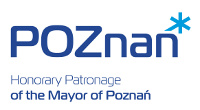PLM2016 Thematic session: A fresh look at contact-induced changes in language structure: the role of large-scale corpora in contact linguistics
Conveners: Robert Borges and Justyna Olko (University of Warsaw)
The contact person for this thematic session is Robert Borges (e-mail:robert.d.borges@gmail.com)
In recent years, the study of language contact has become a popular sub-discipline in linguistics. With the availability of numerous recent large-scale data collection projects, and general ease of access to large existing corpora, there is sufficient room for the development of data driven approaches in the study of language contact. The objective of this workshop is to bring together interested scholars for discussion on developing methodological approaches and analytical frameworks to best utilize large data sets in investigations of contact-induced language change at the structural level.
Studies of language contact based on analyses of substantial data sets that include one or more of the following components are particularly welcome:
– Advanced quantitative techniques
– Synchronically informed diachronic component, for example, the role of code-mixing in language change
– Changes in language structure as demonstrated in the data set
– Compensational strategies that counterbalance one area of a language’s structure in the face of ‘borrowing’ or loss of another structure
– Methodological rigor regarding changes in morphological boundness
– Change in a language’s typological profile (analytic <—> (poly)synthetic; isolating <—> agglutinating <—> fusional)
Select literature:
van Coetsem, Frans. 1988. Loan Phonology and the Two Transfer Types in Language Contact. Dordrecht: Foris Publications.
van Coetsem, Frans. 2000. A General and Unified Theory of the Transmission Process in Language contact. Heidelberg: Winter.
Heine, Bernd, Tania Kuteva. 2005. Language contact and grammatical change. Cambridge: Cambridge University Press.
Johanson, Lars. 1992. "Strukturelle Faktoren in türkischen Sprachkontakten." [In] Sitzungs- berichte der Wissenschaftlichen Gesellschaft an der Johann Wolfgang Goethe- Universita ̈t Frankfurt am Main. Vol. 29; 196–299.
Johanson, Lars & Martine Robbeets (eds). 2012. Copies versus cognates in bound morphology. Leiden: Brill.
Kossmann, Maarten. 2010. "Parallel system borrowing: parallel morphological systems due to the borrowing of paradigms." [In] Diachronica. Vol. 27; 459–487.
Léglise, Isabelle, Claudine Chamoreau (eds). 2013. The interplay of variation and change in contact settings. Amsterdam: John Benjamins.
Matras, Yaron, Jeanette Sakel (eds). 2007. Grammatical borrowing in crosslinguistic perspective. Berlin: de Gruyter.
Migge, Bettina, Isabelle Léglise. 2013. Exploring language in a multilingual context: Variation, interaction and ideology in language documentation. Cambridge: Cambridge University Press.
Muysken, Pieter. 2001. Bilingual Speech: A typology of code-mixing. New York: Cambridge University Press.
Muysken, Pieter (ed). 2008. From Linguistic Areas to Areal Linguistics. Amsterdam: John Benjamins.
Poplack, S. 1980. "Sometimes I'll start a sentence in Spanish y termino en español: toward a typology of code-switching." [In] Linguistics. Vol. 18; 581–618.
Thomason, Sarah. 2001. Language Contact. Edinburgh: Edinburgh University Press.
Thomason, Sarah, Terrance Kaufmann. 1988. Language Contact, Creolization and Genetic linguistics. Berkeley: University of California Press.
Treffers-Daller, J. 2012. "Grammatical collocations and verb particle constructions in Brussels French: a corpus-linguistics approach." [In] International Journal of Bilingualism. Vol. 16; 5–82.
Winford, Don. 2003. An introduction to contact linguistics. Malden MA: Blackwell.
Winford, Don. 2005. Contact-Induced Changes: Classification and processes. [In] Diachronica 22:2, 373–427
